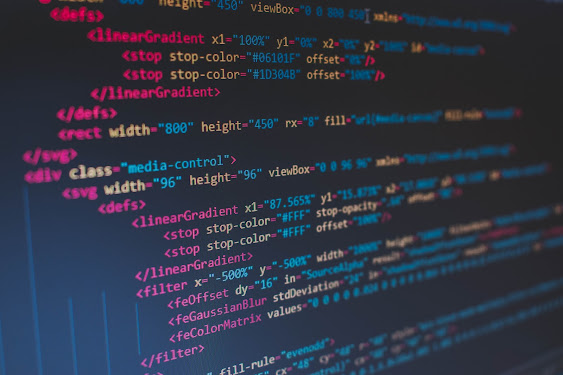Morne Patterson - The History of ChatGPT and the Elon Musk Connection
ChatGPT is a revolutionary artificial intelligence (“AI”)
language model that has transformed the space allowing for more human-like
conversation between machines and people. In this article, I'll explore the
exciting story behind ChatGPT's development, from its beginnings to its current
state as a cutting-edge tool for businesses and researchers.
ChatGPT was created by OpenAI, an organisation that was
founded in 2015 with the mission of developing AI in a way that is safe and
beneficial for humanity. The founders of OpenAI included tech cult figures such
as Elon Musk, Sam Altman, Greg Brockman, Ilya Sutskever, and Wojciech Zaremba.
With Musk's support, the organisation quickly became one of the most
influential players in the AI research community.
Elon Musk's involvement with OpenAI was particularly
noteworthy, given his reputation as a tech visionary and entrepreneur. As a
co-chairman of the organisation's board of directors, Musk provided funding and
resources to support OpenAI's research efforts. However, in 2018, Musk stepped
down from the board, citing conflicts of interest with his other ventures.
Despite Musk's departure, OpenAI continued to make
significant strides in the field of AI. In 2018, the organisation released the
first version of GPT (Generative Pre-trained Transformer), a language model
that could generate coherent and human-like responses to text prompts. This
breakthrough was achieved through a combination of machine learning techniques,
including unsupervised learning, transfer learning, and self-attention.
Following the success of GPT, OpenAI released a second
version, GPT-2, in 2019. GPT-2 was a more powerful and sophisticated language
model, capable of generating longer and more complex responses. However, due to
concerns about its potential misuse for generating fake news and propaganda,
OpenAI initially chose not to release the full version of GPT-2 to the public.
Instead, the organisation made a smaller version available for research.
In 2020, OpenAI released a new and improved version of
GPT-2, known as GPT-3. GPT-3 is currently the most powerful language model in
existence, with unbelievable human-like conversation. It has been used for a
wide range of applications, from generating creative writing to providing
customer service in chatbots.
Despite OpenAI's initial non-profit status, the organisation
shifted its focus in recent years towards commercialising its AI tools. In
2019, OpenAI created a for-profit subsidiary, OpenAI LP, which is focused on
developing and selling commercial applications of its technology. While the
non-profit arm of OpenAI still exists, it has been restructured as a research
organisation, with a focus on developing and advancing AI in a way that is safe
and beneficial for society.
ChatGPT has become increasingly popular in recent years,
particularly for businesses and researchers who are looking to leverage the
power of AI for customer service and other applications. ChatGPT is known for
its ability to generate human-like responses to text prompts, making it an
ideal tool for chatbots, virtual assistants, and other conversational
interfaces.
One of the key benefits of ChatGPT is its ability to learn
from vast amounts of data, allowing it to generate responses that are both
accurate and contextually relevant. This is particularly important for
businesses that are looking to provide high-quality customer service, as
ChatGPT can help to reduce response times and improve the overall customer
experience.
In addition to its applications in business, ChatGPT has
also been used in a wide range of other fields, including healthcare,
education, and journalism. For example, ChatGPT has been used to generate news
articles, medical diagnoses, and even entire textbooks.
OpenAI's commercialisation of its technology has raised some
concerns about the ethics and potential risks of AI. In particular, there are
concerns about the potential for AI to be misused or weaponised, as well as the
potential impact on jobs. However, proponents of AI argue that it has the
potential to solve some of the world's biggest problems, from climate change to
healthcare.
To address these concerns, it is important for organisations
like OpenAI to continue to develop AI in a way that is safe, ethical, and
beneficial for all. This includes investing in research and development, as
well as working with policymakers and other stakeholders to ensure that AI is
developed and used in a responsible and accountable manner.
Today OpenAI is co-owned by a group of individuals and
companies including Microsoft, Reid Hoffman, Khosla Ventures, and Founders
Fund. Microsoft is a particularly important partner, as it has invested over $1
billion in OpenAI and has worked with the company to develop AI tools and
services for use in its own products.
The involvement of these high-profile investors is a clear
indication of the potential that OpenAI and ChatGPT have in the field of AI
research and development. With the backing of these investors, OpenAI is well
positioned to continue its work in developing cutting-edge AI tools and
services that have the potential to revolutionise many industries. However, the
involvement of these investors also raises some concerns about the potential
for AI to be used in ways that are not aligned with the interests of society.
In conclusion, ChatGPT is an exciting and revolutionary AI
tool that has the potential to transform many industries and improve the lives
of people around the world. Its development and success are a testament to the
hard work and dedication of the team at OpenAI, as well as the wider AI
research community.
While there are still challenges and risks associated with
AI, there is no doubt that ChatGPT and other AI tools will continue to play an
increasingly important role in our lives and in the world around us. As we move
forward, it is important to continue to invest in the development of AI in a
way that is safe, ethical, and beneficial for all.




Comments
Post a Comment